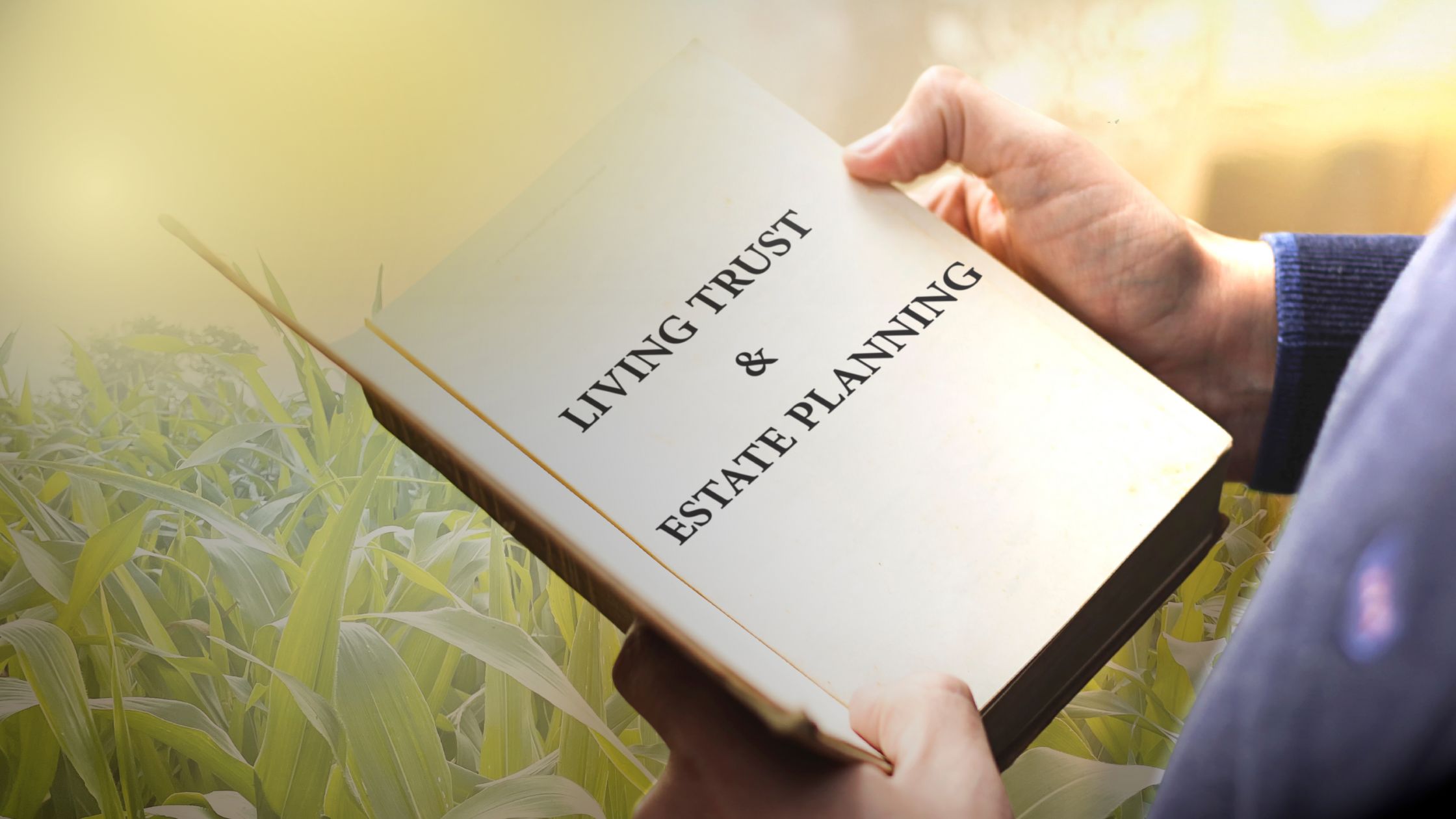The Importance of Estate Plans for Farmers

Featured Topics:
Life on a farm is filled with physical and financial risks. Farmers face unpredictable weather, market fluctuations, and the very real threat of injury or accident—obstacles that can drastically impact their livelihoods. The realities of farming make it one of the riskiest occupations in the U.S., placing countless lives and futures at stake.
Statistically, farming is far more dangerous than many other industries. According to the U.S. Bureau of Labor Statistics, farming has a fatality rate of 23.1 deaths per 100,000 workers, and many farmers don’t make it to retirement age. Nearly one in five farmers are hurt or killed on the job before retirement. This underscores the importance of preparing for the future early.
In comparison, the manufacturing industry has a much lower fatality rate of just 2.1 per 100,000 workers. For office-based jobs, the rate is even lower—under 1 death per 100,000 workers. This gap highlights the unique and intense risks farmers face daily, underscoring the importance of having an estate plan that protects their families and secures their legacy.
Preparing the Next Generation
Passing the farm to the next generation takes more than good intentions. The U.S. Department of Agriculture (USDA) reports that while farmers average 57 years of age, only 30% of family farms transition to the next generation, and just 12% last to the third. Many family farms still don’t have a written plan in place, which can create confusion, disagreements, or even force a sale.
Here’s what to keep in mind to prepare a smooth transition:
Start Early and Communicate Often:
Use Gradual Transition Tools:
Many farmers choose to transition ownership over time through gifting strategies, lease agreements, or installment sales. These phased approaches reduce financial stress on the next generation and provide retiring owners with continued income or involvement.
Involve Legal and Financial Guidance:
The complexity of farm ownership transfer often requires professional advice. Estate CPA, planners, and attorneys can help make certain the process is legally sound and financially prudent.
Estate Planning: Beyond a Simple Will
A well-thought-out estate plan goes beyond just a will; it includes crucial documents like a power of attorney (POA), healthcare directives, and trusts, all designed to protect assets and reduce financial stress for your loved ones. For farmers, estate planning is particularly crucial because of the significant value tied to land, equipment, and other resources that can trigger estate taxes or complicated probate issues for surviving family members. A well-crafted estate plan can alleviate these concerns, minimizing taxes and creating a smooth transition for your family.
A Good Plan Keeps the Farm in the Family
When creating an estate plan, farmers should explore several tax-saving strategies to help preserve the value of their land, equipment, and other assets for their heirs. Without proper planning, estate taxes, capital gains taxes, and probate costs can consume a significant portion of the family’s inheritance. This is where the following come in:
- Establishing Trusts: Irrevocable and revocable trusts can help protect assets from probate and estate taxes while giving flexibility or protection depending on the trust type.
- Gifting strategies: Use of lifetime estate and gift tax exemption allows for tax cost-effective wealth transfers.
- Life insurance: This is a useful tool for minimizing estate tax liabilities by keeping proceeds outside the taxable estate when paid for by heirs.
- Buy-sell agreements: Particularly helpful when multiple heirs are involved, these agreements outline what happens when one party wants out or passes away.
Your business structure also plays a role. Each comes with pros and cons related to control, taxation, and ease of transfer. Choosing the right option can significantly simplify transitions and reduce tax burdens.
1. Sole Proprietorship
→ Tax Implications: The owner is personally taxed on all business income, and upon death, the entire farm may be included in the estate, potentially creating significant estate taxes.
→ Legal Implications: Since there is no legal separation between the owner and the business, transferring ownership can be more difficult and may involve probate unless proactive estate planning is done.
2. Partnership
→ Tax Implications: Profits pass through to partners, who pay individual income tax. Transferring ownership may trigger capital gains or gift taxes, depending on how interests are passed.
→ Legal Implications: A well-drafted partnership agreement is important to define transfer rights and responsibilities. Without one, legal disputes or tax liabilities may arise during the transition.
3. Limited Liability Company (LLC)
→ Tax Implications: LLCs offer pass-through taxation, but they also allow flexibility in how the business is taxed (as a sole proprietorship, partnership, or corporation). Ownership interest can be transferred in phases, helping to minimize large tax hits.
→ Legal Implications: The LLC operating agreement governs how ownership transfers happen, making transitions more structured and legally protected while offering liability protection to members.
4. Corporation (C or S Corp)
→ Tax Implications: Corporations face the most complex tax rules. C-corporations may be subject to double taxation (on income and again on dividends), while S-corporations avoid this but have ownership restrictions.
→ Legal Implications: Corporations provide a strong legal structure, making it easier to transfer ownership through shares, but also require strict formalities and compliance (e.g., bylaws, shareholder meetings).
Partnering with Professionals to Secure Your Farm’s Future
Working alongside a knowledgeable attorney and accountant experienced in farm estates is key to sound planning. These professionals can guide you in crafting a personalized estate plan, minimizing tax burdens, and securing the continued success of your farm.
At MBE CPAs, our team of experienced accountants and advisors are dedicated to helping you develop a comprehensive plan that preserves your assets and protects your family’s future. With our knowledge, you can confidently secure your farm’s legacy for generations to come.
Start your planning journey with MBE CPAs today. Contact us to discuss your estate planning options and take the first step in safeguarding what matters most. Don’t wait—plan now for peace of mind and a lasting legacy.
